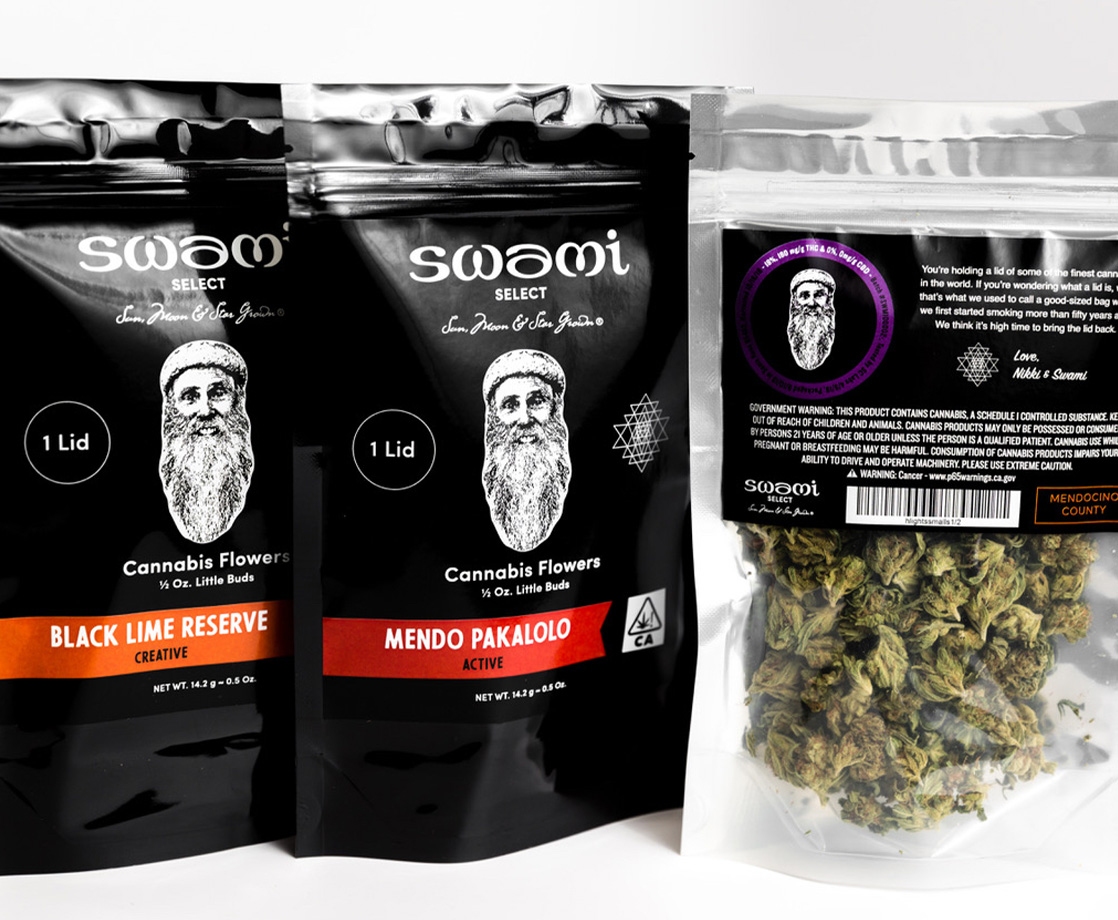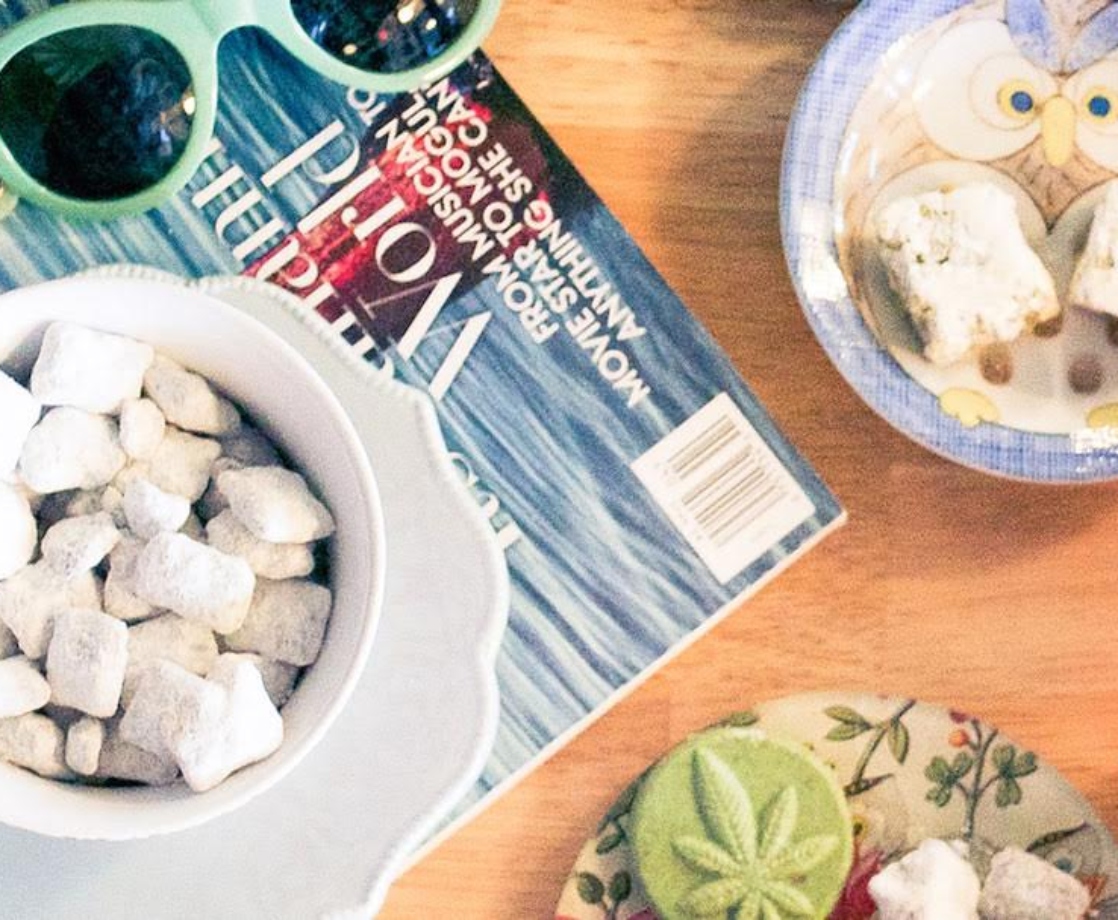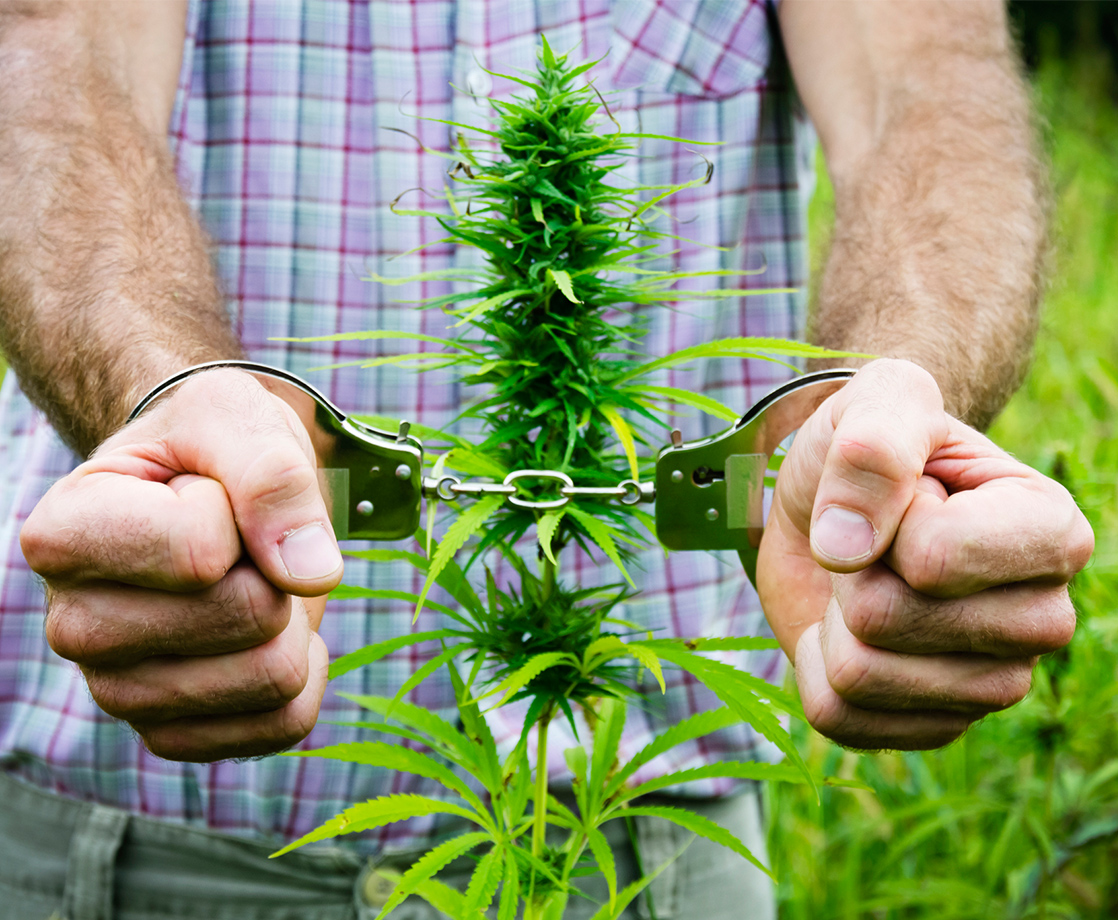All copyrights belong to Swami Select
Let’s face it, one of the oldest professions in the world is sales, regardless of what you’re selling. Each culture has its own techniques and styles of bargaining and schmoozing to get the best deal, but the bottom line is and always will be the same: getting the most bang for your buck.
Naturally, the world of cannabis is no different. For the small craft farmer, there is tremendous competition among the few legal brands, both indoor and sun grown, all vying to get into the fewer-than-900 stores and delivery services across the state of California.
Further, there is competition among the stores trying to draw in the not-as-many-as-they’d-like customers, since the excessive taxes imposed are sending too many buyers back to the booming black market. And there is also the competition among the approximately 1,000 distribution companies, all contending to be Number One and take on the best brands. Everyone is jockeying for the lead position in this race to be the Cannabis King.
.jpg)
Most of the larger retail and distribution businesses have outside investments and big business brains behind them — at least the ones that stand a chance of surviving. But when it comes to the small artisanal farmers, it is a different story. Not only is it rare to find a farmer with an MBA and marketing skills, but most venture capitalists are not interested in investing in businesses that “touch the plant.” And so craft farmers also need to be “crafty” to survive and get into the stores and onto the shelves. Most distributors help with sales and marketing, but that may not be enough.
Jessie F, the Retail Director for SPARC dispensaries, one of the oldest stores around, explained that it is “all about meeting the needs of the masses for the larger companies. But for the craft farmer, even a $20 eighth has to be really good — our customers are the snootiest of the snooty.”
Besides the quality of the cannabis product itself, packaging and marketing are the name of the game. Your package needs to stand out on the shelf next to the top known brands, the ones that can afford costly design and advertising that brings brand recognition. Candescent, for example, is a huge company that sports a bright orange packaging that is very recognizable. Their advertising usually includes some sort of sexy girl blowing smoke, while leaning against an expensive car or outside a lavish mansion. Yes, some people will be swayed by this, but it won’t work for us simple farmers growing the finest craft cannabis. More important, we can’t afford the “slotting fees.”
.jpg)
When you go to a chain grocery store, there are the familiar name brands you’ll always see at eye level on the shelf or on the end racks. They pay extra for that, and the same practice is starting to happen at cannabis dispensaries. Big companies are paying up to $10,000 a month for special sales points of displays — and that fee is per store. That mounts up quickly, but for the highly-invested companies with money to burn, it seems not to be an issue. According to Rick Fisher, Chief Revenue Officer at Candescent, slotting fees pay for themselves in sales and creating brand partnerships with the stores. “Plus we have sales reps all across the state doing demos and keeping track to refill orders as soon as they run out.”
From the point of view of the retail outlets, they would be fools not to take the fees, since this “don’t touch the plant money” can be deposited into banks, unlike other cannabis businesses that remain federally illegal (and hence have no access to regular banks). This means the dispensaries can write checks and make tax deductions on these fees if they are clever.
That sounds smart, but realistically, not many small craft brands can afford the fees or a professional sales rep on a regular basis. That’s why we are constantly on the road these days, doing it ourselves. We have found that the personal touch is what does the trick; it keeps us and our Swami Select brand a known entity to both the budtenders and the clientele.
Plus, we love to travel to dispensaries all over the state and meet the people who end up enjoying our cannabis. These days, the customer base is a truly amazing cross section of society, including many senior citizens looking for pain relief or to purchase clean, pure weed so they can get high like they did in college. People of all ages and from all walks of life come through, and they don’t look like the stereotypical “stoner.”
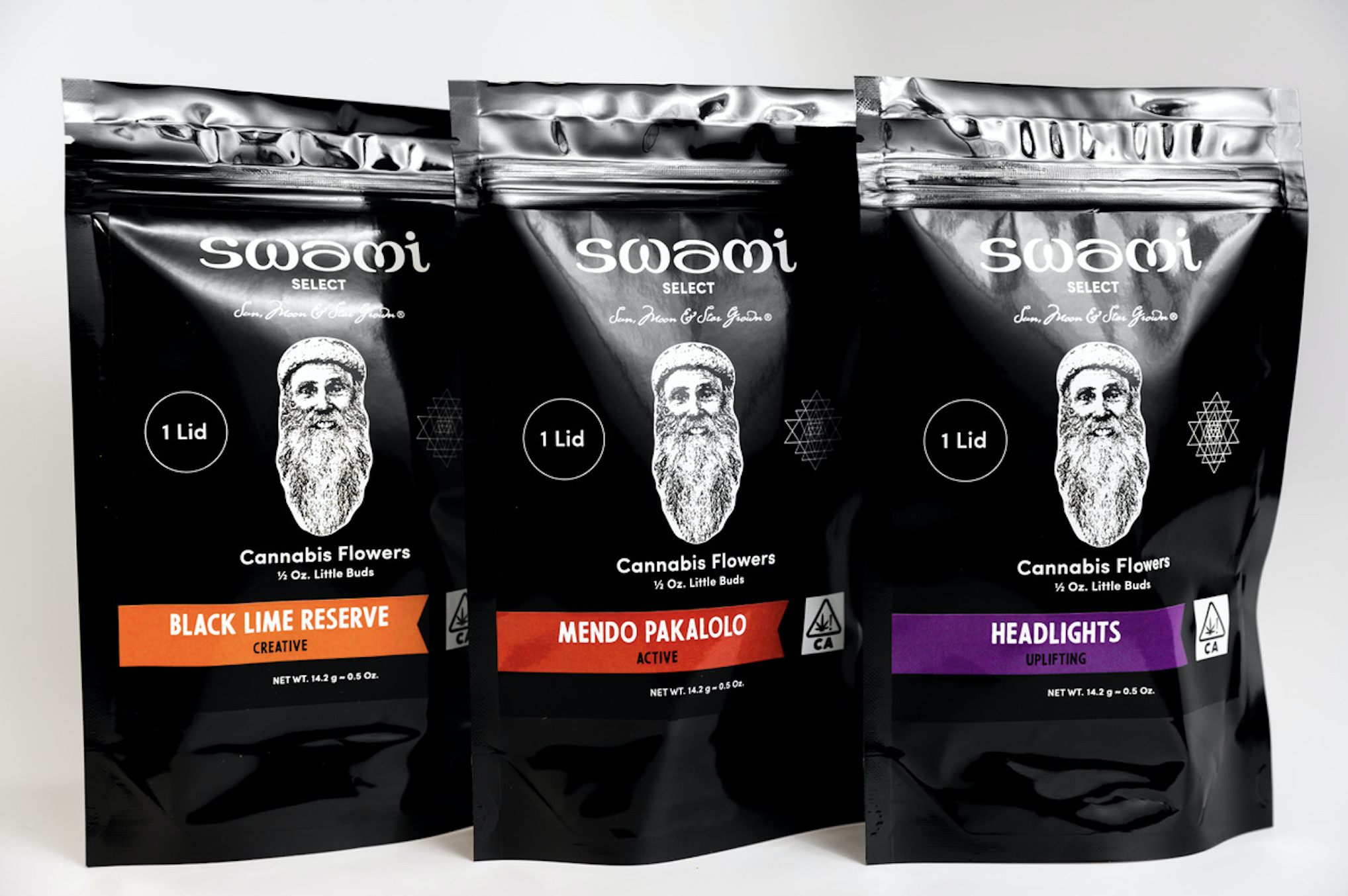
Several dispensaries cater to tourists from all over the country and the world, intrigued by the freedom to select from an incredible variety of products now in the marketplace. Often there are wheelchair-bound folks alongside college professors and young hipsters. Cannabis crosses all lines.
It takes time and energy to visit the stores, but considering we keep hearing that “no other farmers actually come to the store,” it is well worth it. This gives us a chance to talk directly with the sales crew about what makes our flowers special. We also get to see that they all work incredibly hard, patiently explaining the virtues and differences of the numerous products on hand. We especially appreciate the true connoisseurs who want to learn, meet the people who grow their cannabis, and talk about how they do it.
Thanks to such wonderful events as the Hall of Flowers, a business-to-business gathering which happens twice a year in Northern California, representatives of all kinds of brands — big and small — have an opportunity to mingle with retailers and distributors. Every year, the booths get more elaborate, but it is still a great venue for the small craft farmer to meet possible buyers and create lasting relationships, even if they do not have a booth. It also is a way to stay abreast of what the other brands are doing because, as with any business, it helps to know what the competition is working on.
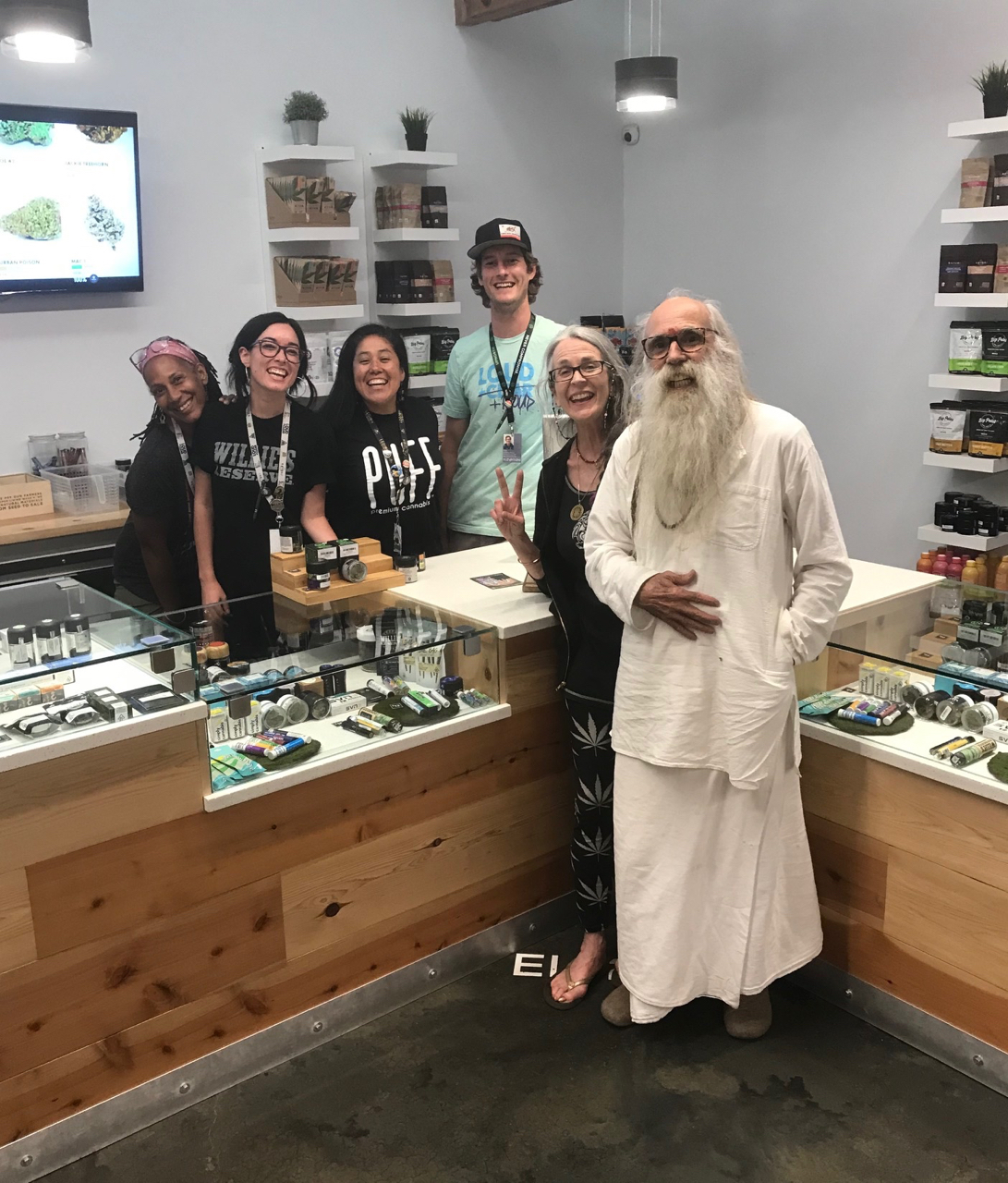
Walking around at Hall of Flowers, we met distributors eager for business, as well as aloof retailers and elite cannabis brands who wouldn’t give us the time of day. “I can’t talk to you now, there may be a retailer wanting my attention,” said a representative from a popular flower brand who snubbed a lowly journalist. This is big business now, no time for small talk. How we miss the old days of friendly farmers and eager retailers! But the joy of such an event is that the people in the next booth were super friendly. It’s almost like dating.
And like dating, good references help a lot. “If we have a relationship with the farmer, they already have a foot in the door. It’s all about the people we work with, the quality and price of the flowers, the customer’s wishes and demands,” explained Diana Schraner, co-owner and buyer for Red Door Remedies. Their store in Cloverdale has a daily Happy Hour when prizes are awarded to anyone who purchase over $50 worth of product. People love a bargain, so the more deals the retailer can offer, the better.

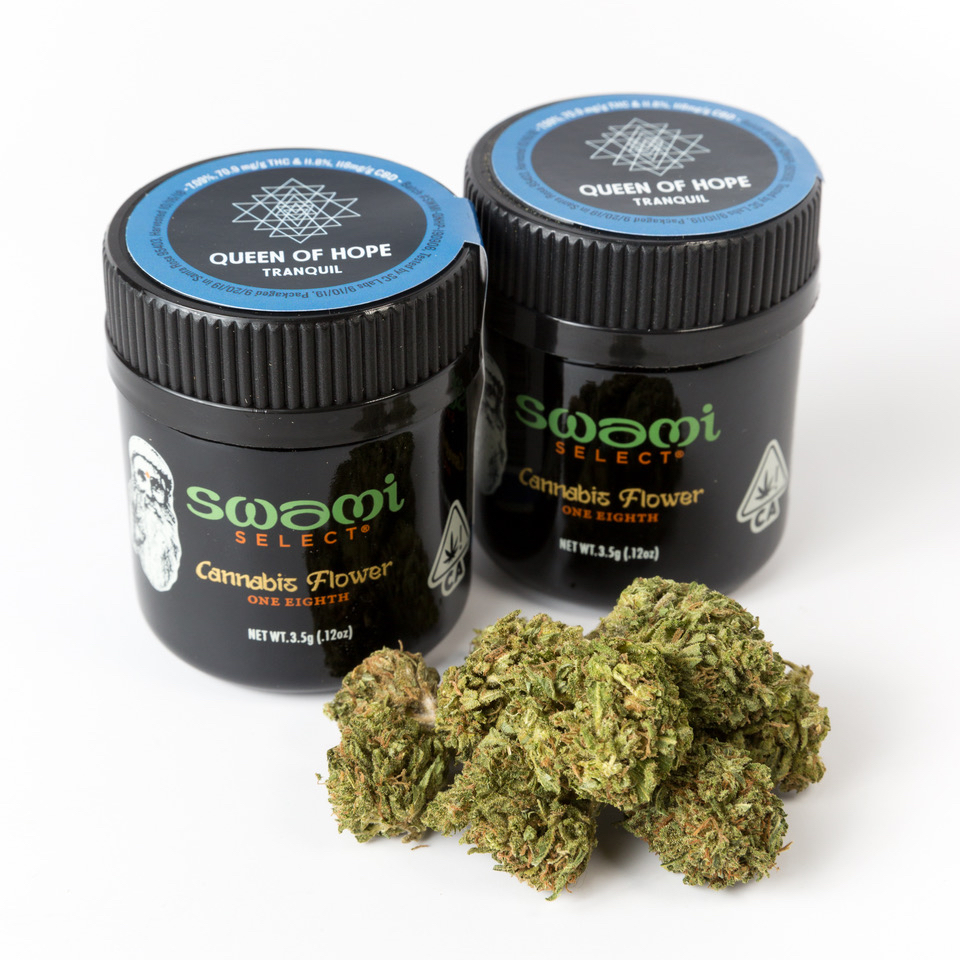
We spoke with Boris Shcharansky, COO at Papa & Barkley, known for their brand of tinctures and healing remedies, and were very impressed. “We are in 87% of the stores and 50% of the delivery companies in the state of California,” he boasted proudly. “We have 30 brand ambassadors who do 150 in-store demos every month. Yes, the competition is fierce, but as long as we are teaching with full transparency and offering the highest quality, the sales keep happening.”
For the small farmer, hard work and dedication are what it takes, but most businesses also need outside funding. However, branding is about telling your authentic story, offering a top quality product, and being out there to put a face on your farm. A good distributor can certainly help, as Igor Ainbinder, chief hashishin at Hella Dank, explained. “We interviewed lots of distribution companies until we found the one with the best vibe. I feel confident that they can take our hash into stores and represent it well.”
It’s really about finding the best fit for you and your team, and engaging with a distributor who understands your company’s ethics and goals. Take your time deciding who is best for you. Feel confident enough to decide what kind of stores you want to feature your products, not just who is willing to take them. Be creative, be unique, and be ready to devote yourself to the roller coaster that the modern cannabis business world has become. Remember, when you truly believe in what you are selling, it happens naturally.
For more on Swami Select, visit their website here and follow them on Instagram


